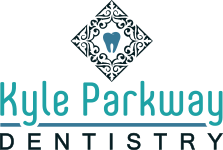How Diet and Lifestyle Can Affect Bone Grafting Success?

Bone grafting is a transformative procedure designed to restore lost bone density, often essential for dental implants or other restorative treatments. However, the success of a bone graft isn’t solely dependent on the surgical technique or materials used; diet and lifestyle play a significant role in determining the outcome.
By understanding how these factors impact the healing process, patients can take proactive steps to improve their chances of success. Here’s a blog that explores how your daily choices impact the healing process and offers practical tips to optimize your recovery.
Role of Nutrition In Bone Grafting Success
1. Nutrients Essential for Bone Healing
Bone grafting relies on your body’s ability to regenerate and integrate the graft material. Certain nutrients are crucial for this process:
- Calcium: Fundamental for building bone. Found in dairy, leafy greens, and fortified foods.
- Vitamin D: Enhances calcium absorption. Sunlight, fish, and fortified cereals are good sources.
- Protein: Provides the building blocks for tissue repair and regeneration. Found in lean meats, legumes, and nuts.
- Vitamin C: Promotes collagen synthesis, vital for bone structure. Found in citrus fruits, berries, and peppers.
- Magnesium: Supports bone mineralization. Found in nuts, seeds, and whole grains.
2. Foods To Prioritize Post-Surgery
A bone-healing diet should include:
- Leafy greens: Kale, spinach, and broccoli for calcium and magnesium.
- Lean proteins: Chicken, turkey, and plant-based options like tofu.
- Omega-3 fatty acids: Found in salmon and flaxseeds, these reduce inflammation.
- Bone broth: Rich in collagen and minerals that support bone healing.
3. Foods To Avoid
Certain foods can hinder the healing process:
- Sugary snacks: Increase inflammation and slow recovery.
- Processed foods: Lack essential nutrients and can cause inflammation.
- Alcohol: Interferes with bone regeneration and weakens healing.
Lifestyle Factors That Influence Bone Grafting Success
1. Smoking and Bone Grafting
Smoking is one of the most detrimental habits for bone grafting success. Nicotine constricts blood vessels, reducing blood flow and oxygen delivery to the graft site. This can lead to:
- Delayed healing.
- Increased risk of infection.
- Higher likelihood of graft failure.
2. Alcohol Consumption
Excessive alcohol intake impairs bone healing by:
- Reduces calcium absorption.
- Increases inflammation.
- Weakens the immune system, raising the risk of complications.
3. Physical Activity and Healing
While staying active is generally beneficial, overexertion immediately after surgery can stress the graft site, leading to complications. Key tips include:
- Rest during recovery: Avoid strenuous activities in the initial weeks.
- Gentle movements: Promote circulation with light walking.
- Avoid pressure on the area: Prevent unnecessary strain on the graft site.
4. Stress and Its Impact on Healing
Chronic stress can negatively affect bone healing by:
- Releasing cortisol, a hormone that inhibits bone formation.
- Weakening the immune system, makes infections more likely.
Incorporating relaxation techniques like meditation or yoga can help.
Hydration and Its Role In Recovery
Staying hydrated is often overlooked but plays a critical role in recovery:
- Flushes out toxins: Proper hydration helps flush out toxins from the body, supporting the overall healing process by removing waste products. This reduces inflammation and creates a healthier environment for bone regeneration.
- Keeps tissues moist: Hydration maintains moisture levels in tissues, which promotes proper blood flow to the graft site. Better circulation ensures that oxygen and other healing agents are efficiently delivered to the area.
- Enhances nutrient transport: Staying hydrated enhances the transport of essential nutrients throughout the body, ensuring they reach the surgical area. This accelerates the integration of the graft material with natural bone, fostering quicker and stronger recovery.
Aim for 8-10 glasses of water daily, and avoid dehydrating beverages like caffeine and sugary drinks.
Pre-Surgery Preparation for Optimal Outcomes
1. Boosting Nutrition Before Surgery
A nutrient-rich diet before surgery strengthens your body and prepares it for healing:
- Focus on calcium and vitamin D-rich foods.
- Incorporate anti-inflammatory options like turmeric and ginger.
2. Quitting Smoking & Alcohol
Stop smoking and limit alcohol intake at least two weeks before surgery. This gives your body time to improve blood flow and immune function.
3. Discuss Medications with our Surgeon
Certain medications, like steroids or anti-inflammatory drugs, can hinder bone healing. Inform our surgeon about your prescriptions to adjust your plan accordingly.
Post-Surgery Tips for a Successful Recovery
1. Follow Dietary Recommendations
Stick to soft, nutrient-dense foods like smoothies, soups, and scrambled eggs during the initial recovery phase. Gradually reintroduce harder foods as advised by our surgeon.
2. Avoid Stressing The Graft Site
- Avoid chewing directly on the area.
- Follow the surgeon’s advice about oral hygiene and rinsing.
3. Stay Consistent with Follow-Ups
Attend all post-operative appointments to monitor healing and address any issues promptly.
Overall, the success of a bone grafting procedure is influenced not only by surgical expertise but also by the patient’s diet and lifestyle choices. By prioritizing a nutrient-rich diet, avoiding harmful habits like smoking and excessive alcohol consumption, and following the surgeon’s recommendations, you can significantly improve your recovery and graft success.
Taking control of these factors empowers you to actively contribute to the procedure’s success and achieve the best possible outcome for your oral health.




